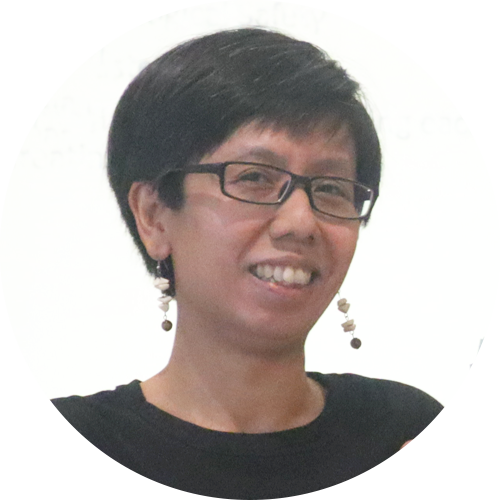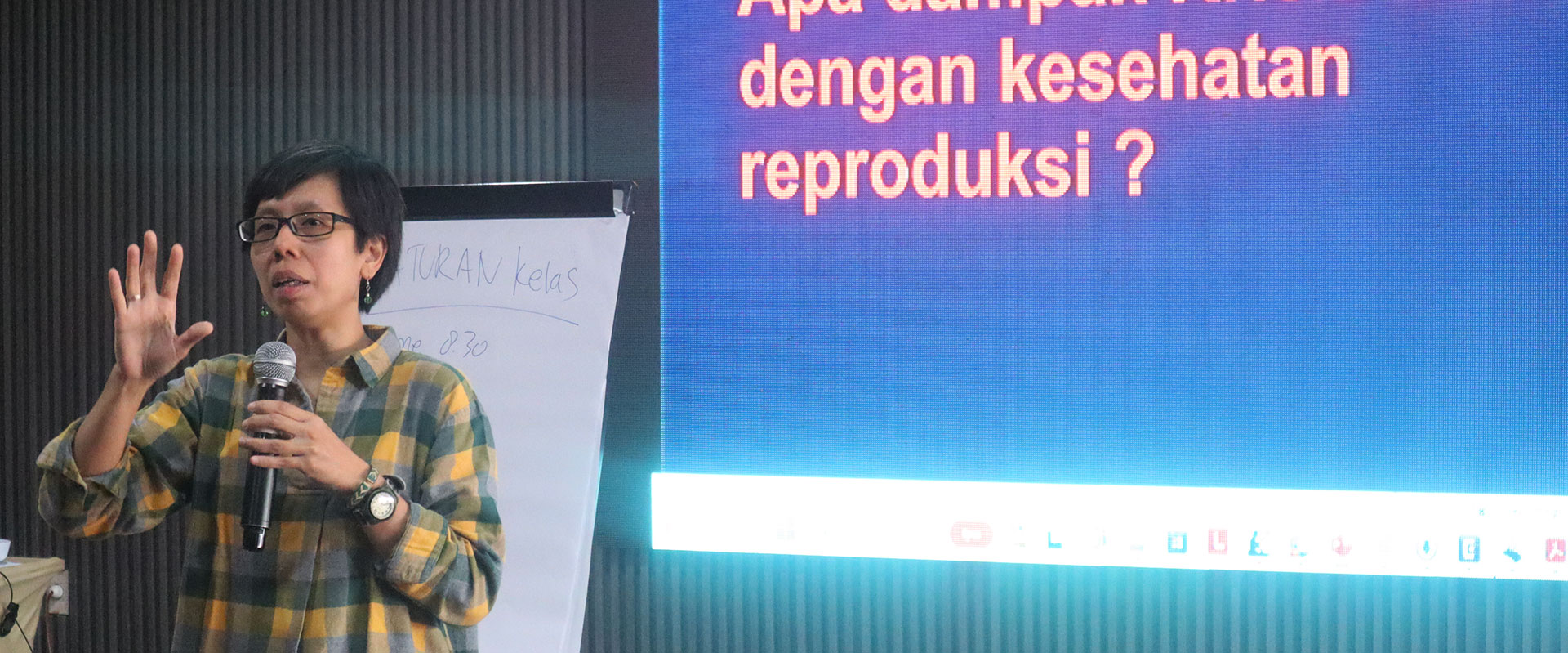Ever since she was in college, Nisa Anisa, Ipas Indonesia’s climate change specialist, has been passionate about women’s issues.
“One of the subjects I studied in college was the sociology of gender and it opened my eyes to the fact that many women in Indonesia experience gender injustice, from the family to society. This motivated me to join organizations that fight for women’s rights.”
The situation has not changed much from her college days.
“There has been no end to women’s oppression due to the patriarchal society we continue to live in. Women experience sexual violence, domestic violence, human trafficking, and other human rights violations.”

In her experience, the excessive exploitation of natural resources has worsened the climate crisis and made life even harder for women in Indonesia.
Recently, Nisa shared insights into her career journey at Ipas.
What does a day in your work at Ipas look like?
As the climate change specialist, I lead one of Ipas Indonesia’s projects, Project CERAH, which stands for Climate Emergency, Reproductive Rights and Health. It’s our first project to integrate reproductive health issues with the climate crisis. The goal is to build the resilience of women and adolescent girls in facing the climate crisis. I work with local partners in Central Sulawesi, where the CERAH project is based.
My role also involves networking with civil society organizations (CSOs) focused on environmental issues and the climate crisis. I introduce Ipas Indonesia as an organization concerned with both reproductive health and climate change. I explain to our team and partners how these two issues are interconnected. Additionally, I collaborate with the communications team to create campaign materials related to the climate crisis and mainstream this issue in Ipas Indonesia’s work.
What challenges have you experienced in carrying out the project?
This project is challenging because, in Indonesia, these two issues have traditionally been separate. We need to approach and discuss the interconnections between reproductive health and the climate crisis with CSOs and the government, both at the national and local levels in Central Sulawesi.
Why do you think it’s important for Ipas to have a role like yours?
Ipas focuses on reproductive justice, ensuring and realizing reproductive health. Reproductive health needs to be guaranteed by the state, especially during a climate crisis. The role of a climate change specialist is crucial to integrate climate change perspectives into the context of reproductive health. Many people don’t see the connection between the climate crisis and reproductive health, but reproductive health is significantly affected when the climate crisis occurs.
What brought you here? What’s your career journey been like?
Since 2005, I’ve worked with non-governmental organizations (NGOs) focusing on women’s issues. I started as a policy advocacy staff member for female migrant workers. Then, I became interested in the intersection of women’s issues and natural resources, which led me to an NGO working on forestry issues. In 2012, I rejoined an NGO focusing on women’s issues and worked in the women’s and natural resource conflict division, where I dealt with the climate crisis. I learned that women have local wisdom in caring for nature, but exploitative development leads to layers of oppression of women and communities, often legalized by state policies.
How does climate change affect you personally? What has changed around you?
Women are losing their livelihoods due to drought and crop failure. They must walk kilometers to fetch water for their families. Natural disasters make women more vulnerable, especially regarding their reproductive health, as they have to use unsuitable water. These challenges made me realize that the state should protect and fulfil its citizens’ rights, including women. Due to economic, social, cultural, and political barriers, women are often denied their rights. I want to contribute to change, ensuring the state fulfils women’s rights. It’s not easy, but I believe in collective power. If we work together, we can achieve our rights.
What inspired the photovoice project? What were its goals and outcomes?
The photovoice project, themed “Climate Crisis and Women’s Reproductive Health,” was inspired by the public’s lack of understanding regarding the climate crisis. Climate change often seems distant, and reproductive health issues are not seen as related to it. We wanted to inform the public in an easy-to-understand and artistic way, so we chose photovoice. Photography has artistic value and can effectively campaign an issue.
We started with training 20 participants, aged 18-23. Young people were chosen because they have fresh perspectives and creative ideas. From this project, 20 photos were produced, capturing the impact of the climate crisis on women’s reproductive health in each participant’s village. These photos serve as an informational campaign, showing the public that the climate crisis is right before their eyes.
The climate crisis affects everyone globally, so we must join hands to face it. We must also fight together for climate justice and reproductive justice.


